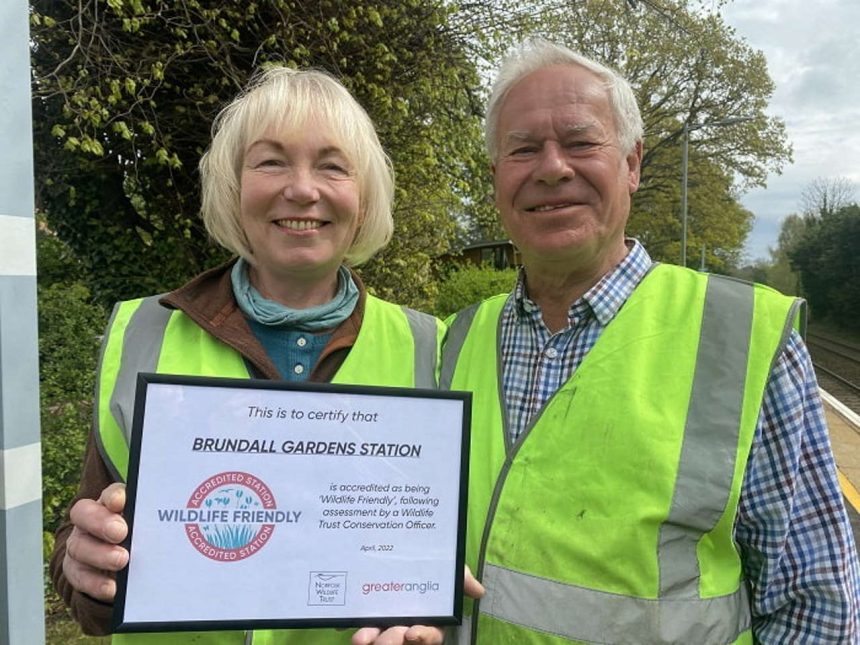Volunteers at Brundall Gardens railway station in Norfolk are to receive a ‘Wildlife Friendly' accreditation for their work to improve the station's biodiversity.
Greater Anglia has partnered with Norfolk Wildlife Trust to create a ‘Greater Anglia Wildlife Friendly Stations Accreditation Scheme'. This formally recognises the achievements of Greater Anglia's team of volunteer ‘station adopters' to create wildlife havens at stations across its network.
Brundall Gardens is the first station in East Anglia to receive the award under the new scheme.
On Monday, 25th April the award was presented at the station to station adopters Greg Chandler and Gillian Lincoln by Norfolk Wildlife Trust's Corporate and Membership Development Officer, James Hogg,
Cantley, West Runton, and Thetford stations are also to receive accreditations following an assessment by a Norfolk Wildlife Trust Conservation Officer to determine how well they support local flora and fauna.
Each assessment also provides tips and advice on how to make the stations more wildlife-friendly. The reports can also be used as examples of best practice to help spread good ideas around all Greater Anglia's stations.
Last year, volunteers transformed over 6,800 square metres of land into thriving wildlife gardens, making railway stations in East Anglia havens for local wildlife. In a recent survey, Greater Anglia's station adopters reported a wide range of creatures visiting their stations, including many different types of butterflies, bees, slow worms, bats, foxes, deer, and over 200 different species of birds.
Greater Anglia's Customer and Community Engagement Manager, Alan Neville, said:
“We're delighted to partner with the region's wildlife trusts to formally recognise the valuable work of our station adopter volunteers in supporting wildlife and improving their local environment.”
James Hogg said:
“The alarming decline in the abundance of wildlife and the plight of species under threat means that just protecting the nature we have left is not enough; we need to put nature into recovery, and to do so at scale and with urgency. We are working to create a nature recovery network across Norfolk – and with fellow wildlife trusts across the UK – to create more space for wildlife.
“This project with Greater Anglia is a fantastic example of how people can transform nature-poor areas into new nature-rich places – and change the way we think about land, seizing opportunities to help nature outside traditional nature reserves.”
“I'd like to congratulate the volunteers at Brundall Gardens on receiving this recognition and thank them for the incredible work that are doing that makes the station a wonderful place to be, that is contributing to support biodiversity locally.”
